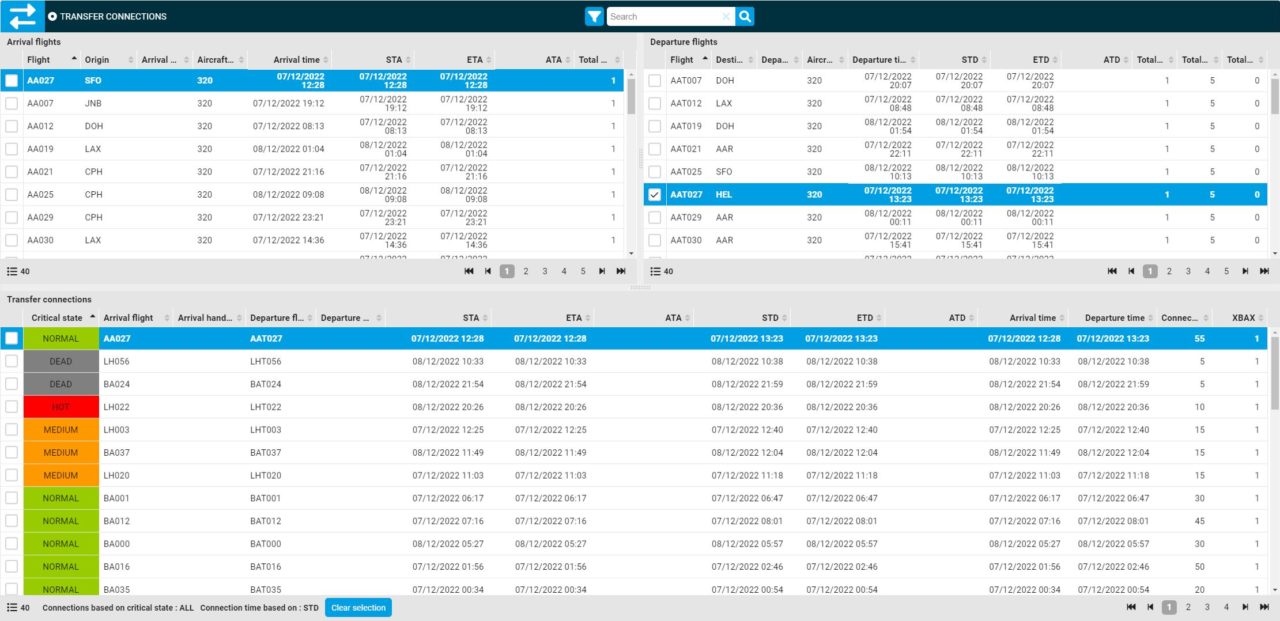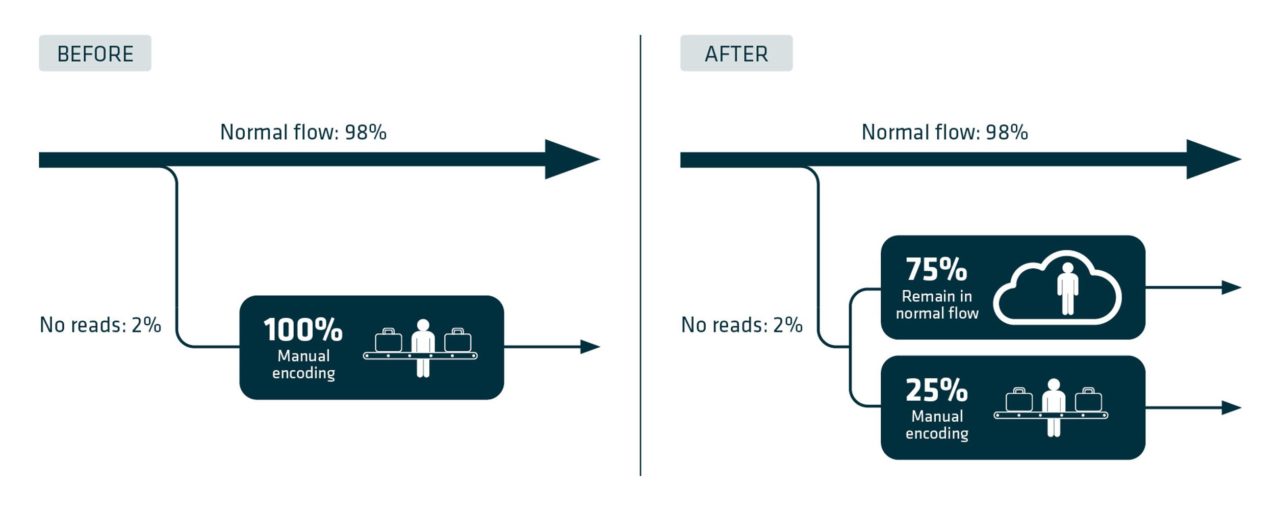Video Coding plays a huge role in reducing the processing time of unidentified bags. The ability to encode remotely leads to fewer short shipped bags, as the bags stay en route while being identified. By comparison, bags in a traditional manual encoding system must be redirected or stopped and queued at manual encoding stations for identification.
Having a VCS also means having a superior fallback solution if a single airline DCS (Departure Control System) failure occurs. In that event, bags are simply sent to video coding to gather the missing information. No additional procedures or special equipment are required. In fact, this fallback solution can also scale to cope with a total BSM outage scenario. (As all bags would have to be handled by the VCS, workstation capacity would need to be aligned accordingly.)
In contrast to manual encoding, remote encoding of unidentified bags can take place from an office which improves the operators’ ergonomic environments and working conditions considerably. It also keeps the required number of operator stations to an absolute minimum.


